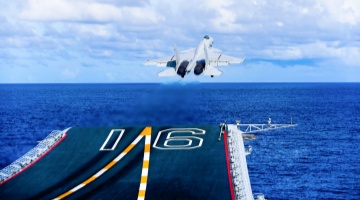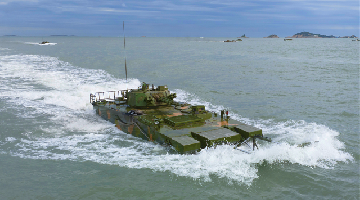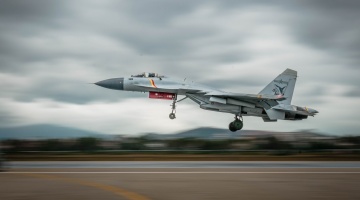By Chen Yadong
Germany's 45th Armored Brigade was recently inaugurated in Vilnius, the capital of Lithuania. This marks the first time since the end of World War II that Germany has permanently stationed a large number of troops overseas. Analysts believe that Germany's troop deployment in Lithuania is aimed at enhancing its role in European security affairs and reflects its proactive stance on promoting European defense autonomy.
As early as 2014, the Crimea crisis triggered a sharp rise in security anxiety among European countries. At the 2016 NATO Summit in Warsaw, the alliance decided to reinforce its military presence in Central and Eastern Europe by deploying Enhanced Forward Presence (EFP) battle groups in Estonia, Lithuania, Latvia, and Poland. Germany responded actively to NATO's call and led the establishment of a multinational battle group in Lithuania in 2017.
In recent years, in light of the evolving situation and future trajectory of the Ukraine conflict, the federal government of Germany has further shifted its strategic focus towards Central and Eastern Europe. In December 2023, the defense ministers of Germany and Lithuania signed an agreement on the permanent deployment of German troops in Lithuania, under which both sides jointly formulated the stationing model and deployment route for the German forces. According to the agreement, the 45th Armored Brigade of Germany, comprising around 5,000 personnel, is scheduled to be fully deployed by the end of 2027. It is reported that approximately 4,000 of these troops will be stationed at the Rudninkai military base near Vilnius.
In fact, the profound evolution of global and regional security dynamics, coupled with overlapping crises, has not only compelled the German military to undergo strategic transformation but also created an opportunity for it to break through the constraints of its traditional defense policy framework. Following the outbreak of the Russia-Ukraine conflict, Germany significantly increased its military spending by establishing a €100 billion special defense fund and raising its defense budget to more than 2% of its GDP, which marks the highest increase in developed Western countries. As the second-largest provider of military aid to Ukraine following the US, Germany has continuously pushed the boundaries of its assistance, from initially supplying helmets and light weapons, to Leopard 2 tanks, and potentially even Taurus missiles in the future, demonstrating a steadily deepening of military involvement.
Germany's deployment of troops to Lithuania also reflects its intention to safeguard relations with the US by assuming greater defense responsibilities within NATO. It is worth noting, however, that Germany's current strategic moves may backfire in multiple ways. First, it risks further provoking Russia. In 2022, Lithuania's "blockade" of the Russian exclave of Kaliningrad already sparked strong anger in Moscow. The arrival of a German armored brigade is certain to draw a strong response from Russia. In particular, the deployment to Rukla, just about 20 kilometers from the Belarusian border, has undeniably heightened regional tensions. Second, this move may undermine the traditional Franco-German mechanism for strategic coordination. Over the more than three years since the outbreak of the Russia-Ukraine conflict, French President Emmanuel Macron has sought to play an active role in boosting France's influence in Europe, but with limited response and effectiveness. Now, Germany's large-scale troop deployment to Lithuania acts as a "wedge" driven into Central and Eastern Europe, potentially weakening the strategic synergy between France and Germany in the realm of European defense.
Analysts point out that Germany's current strategy of overseas troop deployment clearly runs counter to the country's long-standing tradition of "pacifism," and is bound to face strong opposition from its traditional domestic elites. Moreover, given the impact of global economic fluctuations and trade frictions between the US and Europe, Germany's economy is set to enter a challenging phase of development, likely constraining its efforts to expand overseas military deployments.
(The author is from the Chinese PLA Academy of Military Science)













